
by Dr Alex Jimenez DC, APRN, FNP-BC, CFMP, IFMCP | Gut and Intestinal Health, Nutrition, Wellness
Today, we will be talking about what does the protein compounds and the peptide compounds do when a patient is being tested for food sensitivity. And we will also discuss what the Lectin and Dairy Zoomer do when a patient has a reaction to those types of food groups. In the last article, we mentioned about immunoglobulins in the intestinal barrier. And what do IgA and IgG antibodies do to the peptide and protein level?
Proteins vs. Peptides
So let us take a look at proteins and peptides since this is what Vibrant Food Zoomers are actually testing on a patient. Remember that the Food Zoomers are testing the peptides in the whole protein and testing all the links to see what the patient is actually sensitive to the foods they are consuming.
Proteins
Protein is basically abundant biomolecule that is consist of one or more long chains of amino acid residues. Proteins can be found in whole foods like meats and vegetables that can help the muscles in our bodies. In the last article, we talked about how IgA and IgG antibodies are used for food sensitivity testing.
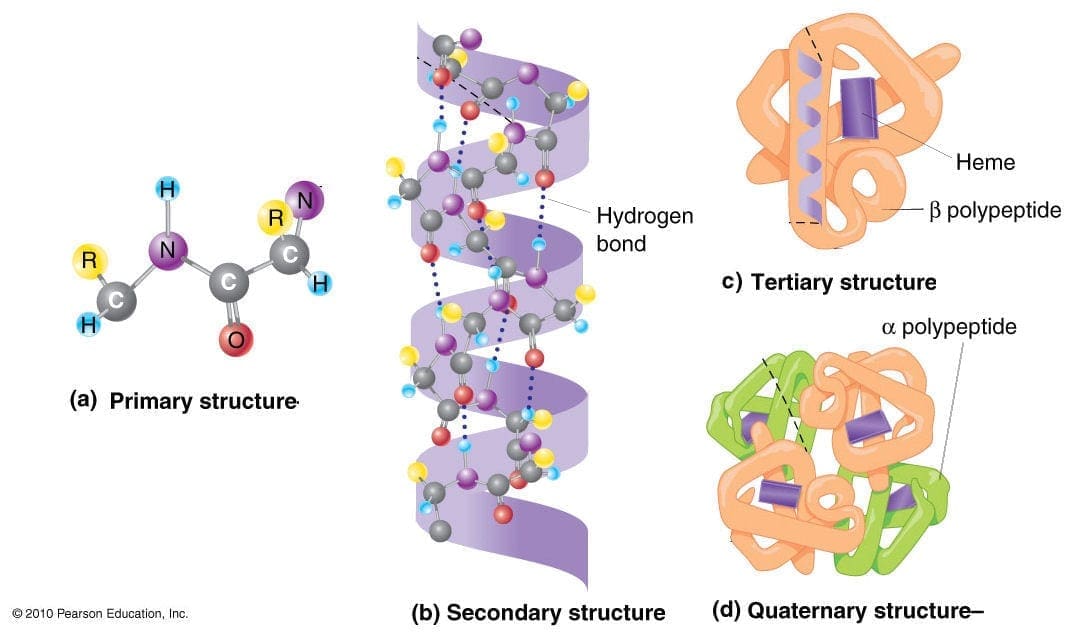
However, there is a limitation of a whole protein food sensitivity testing on a patient. Practitioners do make the assumption that the patient�s gut barrier is functional and intact since there are no signs of a leaky gut syndrome presented in the results. But, if that patient has the leaky gut syndrome, then the food sensitivity test will reflect what the patient has been eating. Another assumption is that the patient�s HCI and digestive enzymes are sufficient for tolerable proteolysis. Which means that those enzymes are breaking down whole proteins into smaller peptides.
Peptides
Peptides are what in protein molecules as they are short chains of amino acids and are linked by the peptide bonds. When they are being tested by the food sensitivity tests, the reproducibility is higher. It doesn�t rely on the excess HCI (hydrochloric acid) or enzymes. What the test eliminates is the cross-reactivity because peptides in proteins are not going to have molecular mimicry to other unrelated proteins.
The antibodies are highly specific to the peptides because they are not going to be generalized or more massive antibodies of proteins since cross-reactivity is eliminated. Another thing is that the peptide test does is that it can measure thousands of peptides in one protein for a full spectrum of reactivity.
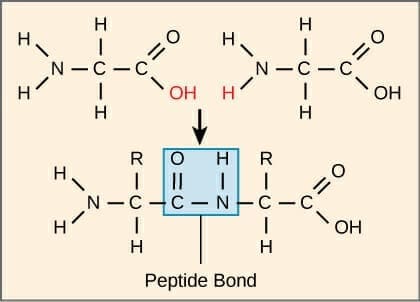
When patients are coming in with digestive problems and inflammatory condition/symptoms, practitioners take note that a lot of patients commonly have hypochlorhydria and deficiencies of enzymes and/or bile acids. Most patients sometimes have moderate to severe impairment of the intestinal barrier. When that happens, local doctors discuss with them that they may have to change their diets slowly but surely. And with integrative functional medicine that can occur.� Local practitioners look at their patient�s ailments and start detoxifying their bodies slowly. This helps their bodies heal and recommend them whole, nutritious, organic foods, and supplements to help repair the body naturally. Sometimes medicines can cause disruption to our bodies, however with whole natural foods and specific diets, it can help restore our bodies. Plus making sure that we exercise to make our bodies feel good and look good.
So now that we understand what proteins and peptides do when they are being tested. Let�s take a look at the food zoomers that can help you in case you have a sensitivity to these food groups. These are the Vibrant Lectin Zoomer and the Dairy Zoomer.
Lectin Zoomer
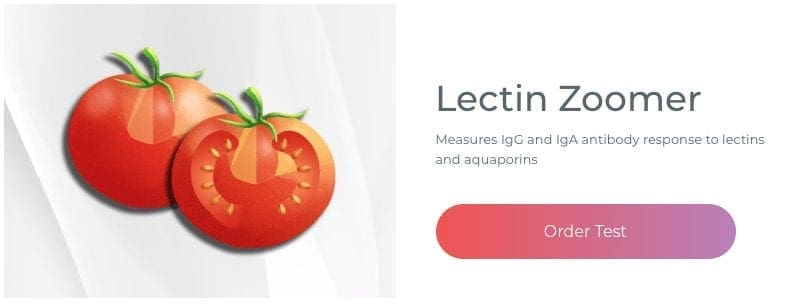
The Lectin Zoomer is consist of a handful of lectins and a handful of aquaporins. The most common lectins that people consume are barley, bell pepper, chickpea, corn, cucumber, potato, etc. And the most common aquaporins that people consume are spinach, soybean, tomato, tobacco, etc.
Difference between Lectins and Aquaporins
The difference between lectins and aquaporins is that lectins are sugar-binding proteins that are found in both animals and plants, which can bind to the carbohydrate structures on cells. While aquaporins are water channels that are found in cavities in both plants and humans. Some aquaporins can cross-react and can lead to primarily neurological symptoms.
How Problematic are Lectins?
Some studies show cell toxicity in humans is done by using extreme cytotoxic lectins. Ricin, for example, is a common biological warfare element that is not from the commonly consumed legumes or grains. It contains cytotoxic lectins and is being consumed by animals like mice or pigs. The assumption is being made that there are similarities with humans and animal gut glycosylation (the process of sugar-binding) in these situations.
Unfortunately, though it hasn�t been demonstrated thoroughly. But lectins have biological activity in the human body. They have been used as a cancer treatment mechanism because they can agglutinate cancer cells. Which means that they produce cytotoxicity to cancer cells and can actually carry chemotherapy across cancer cell membranes.
Even though that is a good thing, lectins can facilitate the bacterial endotoxins across the epithelial barrier and go into the peripheral tissues. And that can cause inflammation to the intestinal epithelial barrier in the small intestines. Animals studies show that raw lectin consumptions can cause hemagglutinating effects, causing inflammation.
But we as humans don�t eat raw lectins because they are cooked, not pressurized cook. Certain foods that are lectins can be eaten raw or cooked. But animal studies stated that they are using for these studies are grain and legume lectins that are raw like beans and grains. But the upside is that lectins can affect the metabolism of nutrients to increase fat loss which is a positive side effect.
Measuring the Sensitivity to Lectins
On the Food Zoomers test, lectins are really not included in each analysis, except for the Wheat Zoomer. Surprisingly, a Food Zoomer may be non-reactive, but whoever is sensitive to a lectin component in the food they eat, may be reactive. So when that happens, it is necessary to eliminate the food temporarily.
If you are sensitive to a particular food, you can have a Food Zoomer and a lectin Zoomer combine. Because if you are sensitive to the food you consume, and it doesn�t show up on the Food Zoomer, but it shows up on the Lectin Zoomer. Then you should eliminate it from your diet for a bit until you retake the test.
Conditions Associated with Lectins
If you do have a lectin sensitivity, here are some of the terms that can affect your body.
- Arthritis/rheumatoid arthritis
- Connective tissue disorder
- Gastrointestinal inflammation
- Intestinal permeability
- Possible cancer in established cancer patients
Now let�s take a look at the Dairy Zoomer and its functions if you are sensitive to whole dairy products.
Dairy Zoomer
The Dairy Zoomer is a peptide level assessment of the full spectrum of immune response possible to proteins in cow�s milk dairy. What this means that the Dairy Zoomer is only specific to cow�s milk. Since some proteins in cow�s milk are similar enough in the molecular structure to have the same homology to goat or sheep�s milk.
This means that these other kinds of milk may be potential can cause inflammatory in some individuals. The oral challenge for alternative types of fluid may be warranted, but use your best clinical judgment after the intestinal barrier is healed.
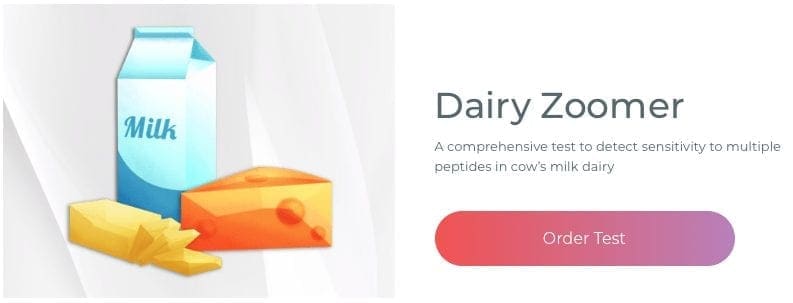
What the Dairy Zoomer does is that it takes the milk protein and breaking each individual protein down to its different peptides. If you are wondering if the Dairy Zoomer is a test for lactose intolerance, it is not. Since lactose intolerance is not an immune-based reaction to dairy and does not involve any protein constituents of the food, therefore no antibodies are being generated.
What it is going to test for is the casein and whey proteins in the milk product from all animals, and the ratio of these proteins will vary by species. But all the proteins and milk will generally fall into one of these two proteins.
What to do with the results?

Once your patient comes back after taking the Food Zoomers test, here are some of the things to look for when you are retesting them.
- If there are any IgA antibodies still in your patient, warrant an immediate elimination, regardless that it�s moderate or positive.
- If there are any Moderate IgG antibodies in your patient, then it should be eliminated in the short term. Then rotate after a 30-60-day elimination and assessing the status of the intestinal permeability to confirm that that gut barrier is no longer �leaky.�
- If there is a positive IgG result, then it should be eliminated long term and only reintroduced after 90+ days and confirm of an intact intestinal barrier.
Conclusion
So all in all, food sensitivity combine with the food zoomers test are an excellent way to help your body, especially the intestinal system. The Food Zoomers we used is functional for our patient�s wellness. Because we want to get rid of the excess antibodies and heal our patient�s body through the use of functional medicine.

by Dr Alex Jimenez DC, APRN, FNP-BC, CFMP, IFMCP | Functional Medicine, Gastro Intestinal Health, Gut and Intestinal Health, Wellness
The usage of integrated functional medicine is essential when it comes to our bodies overall health. Local practitioners and health coaches, talk with patients on what seems to bother them. Sometimes it is a simple adjustment, but mostly it�s what�s causing them problems on the inside. Some patients have inflammation around their intestinal epithelial barriers, and it can cause a leaky gut.
In the previous article, we talked about what the microbiomes do in our intestines and what is their functions are in the intestinal epithelial barrier. However, today we will discuss what the immunoglobulins antibodies do with proteins and peptides in the intestinal permeability. As well as explaining what the Lectin Zoomer and the Dairy Zoomer does when a patient has a food sensitivity and needs testing in a two-part series about the intestinal permeability and food zoomers.
Immunoglobulins
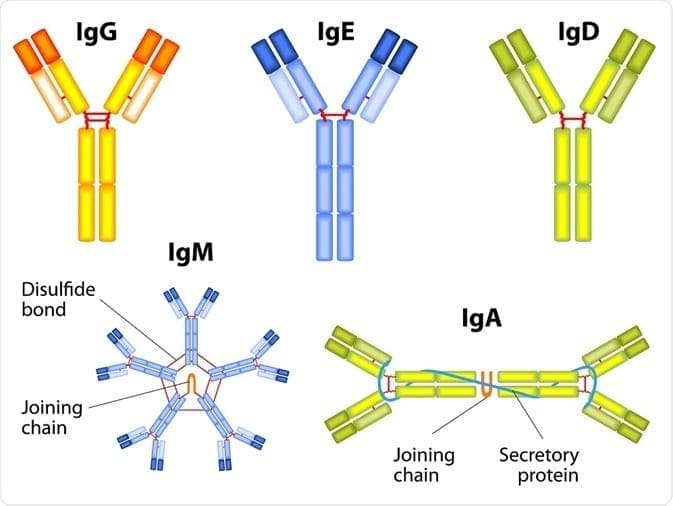
The first thing that we need to know is that immunoglobulins are immune-mediated reactions. So anything that involves the immune system will cause a hypersensitivity reaction to one or more food or foreign proteins, and their presence can be of one or more types of immunoglobulins.
There are 3 terms of hypersensitivities that can be involved with immunoglobulins:
- Allergies are the ones that are most common and are associated with anaphylaxis. Patients can have a very severe and acute immediate reaction to specific allergens like food or environmental like pollen or a bee sting.
- Non-allergies, sensitivity reactions involved either chemical mediators or antibody reactions.
- Food intolerances are non-immune-mediated reactions, and a good example is Lactose Intolerance or a bile salt deficiency. These can make somebody who has a food intolerance, can�t digest fat.
These three terms are often mistaken and used interchangeably clinically, but they are entirely different since they are not interchangeable. Especially when it comes to sensitivities and intolerances because those two commonly get used in place of each other, but they are totally different.
If you are testing your patient�s immunoglobulins, remember that antibodies are particular to each type of foreign substances and can be in three types of hypersensitivity. Antibodies will only bind an react to the specific proteins of the foreign material but not to the substance�s extract. The most common ones are type 3, where it involves IgG, IgA, and IgM. This type can tell us what cells and mechanisms are involved.
Type 3 Hypersensitivity Mechanisms
Here are the types of mechanisms that are involved with Type 3 immunoglobulins.
- Antigens are a foreign protein that is present and is recognized as a threat or non-self.
- Antibodies will bind to the antigen to neutralize or keep it from linking to anywhere else in the body. This is where the immune complex is formed.
- Immune complexes insert themselves into the small blood vessel, joints, tissues, and glomeruli, causing symptoms to the body.
- They are far more capable of interacting with complement proteins to form medium-sized complexes; which has an excess amount of antigens that are high pathogenic.
- However, once the immune complex is in the tissue, it can induce an inflammatory response and cause damage to the body. This damage is the result of the action of cleaved complement anaphylatoxins, which can mediate a mast cell degranulation.
- With the recruitment of inflammatory cells in the tissue, it can lead to tissue damage through phagocytosis.
IgA and IgG
In a previous article, we mentioned the mechanics of the intestinal permeability. However, we going to discuss what IgA antibodies and IgG antibodies do to the gut and to the entire body.
IgA Antibodies
IgA antibodies are found in the body where there is a mucosal lining around the areas like the nose, breathing passages, digestive tract, ears, eyes, and vaginal region. These surfaces are exposed to the outside of the environment either by air, food, or other foreign substances regularly.
IgA antibodies actually protect the body surfaces that are exposed to outside foreign substances, and these antibodies can be found in saliva, tears, and blood.
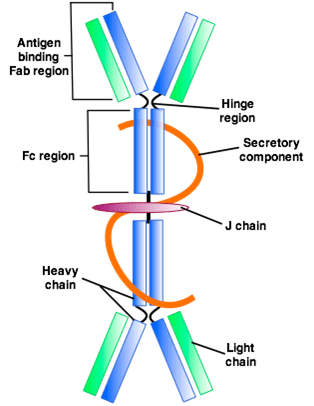
In the gut, however, it can bind to the mucosal layer on the top of the intestinal epithelial cells to form a barrier to neutralizing threats before they reach the cell. And that is very important, especially since IgA is like an insurance policy for your gut.
IgA antibodies are considered as non-inflammatory. Which means that they don�t stimulate inflammatory processes in the body like IgG does. They do, however, create a mucosal response to a foreign antigen, and it is usually microbial (ex., bacteria, yeast, viruses, parasites) or microbial toxins. They can also generate a response to pollutants, toxins, and recognized undigested food as a foreign protein.
In the intestinal lumen, IgA can be indicative of an immune response stimulated by T-b cell interaction. So a healing intervention, if a patient has an abundance of IgA antibodies may need to target TH1 and TH2 balance so it can regulate T-reg production.
IgG Antibodies

IgG antibodies are found in all body fluids. They happen to be the smallest but the most common of all antibodies as they make-ups about 75% to 80% of antibodies found throughout the entire body. These antibodies are essential as they fight against bacterial and viral infections, and they are the only type that can cross the placenta.
They do indicate exposure to a specific antigen, but they don�t always necessarily indicate active inflammation; however, they can contribute to it in a dose-independent.
Why measure IgA and IgG?
So why do we measure IgA and IgG? Surprisingly some people don�t produce as much or any IgA antibodies, and therefore, local practitioners would not know if their patients have formed a reactivity to an antigen if they don�t check their IgG levels.
Surprisingly, some IgG antibodies are not an indicator of actual inflammation or disease process. Some IgG antibodies are formed in response to a protein as sort of a tracker in the body but do not elicit a reaction. However, IgA antibody is coupled with IgG to indicate a bit stronger immune response to an antigen in some cases.
IgA and IgG in the Protein Level
IgA and IgG testing in the protein level is what the food sensitivity tests are looking at. They look for the whole protein, which is the extract level. All food sensitivity test looks for residues of carbohydrate and lipid-based particles. It�s not pure protein but that what the test does, it seems for the reactive compound. Some of the strengths are that the test gives an acute measure of IgG and IgA to a specific protein. It can also be suitable for associating Type 3 reactions involving IgG and IgA complexes, and if the IgG is pathogenic, then it will be beneficial.
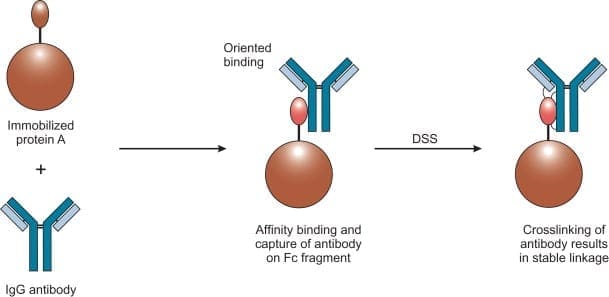
Some of the weaknesses are that IgG can be a protective antibody, and it may be a good thing. It means that the immune system is handling it and there�s nothing necessarily wrong about that. IgG and IgA antibodies represent whole proteins being presented to the immune system can it also be an indicator that a patient may have a lack of sufficient digestive capacity when many food sensitivities are being detected.
IgG and IgA in the Peptide Level
When IgG and IgA are being tested at the peptide level, this is where the food zoomer test focuses on. This is because there is a high level of antibodies specificity, cross-reactivity is minimized if not completely eliminated. The concept of foods that are cross-react, for example, gluten, might cross-react to other foods that are similarly shaped in their molecular structure, then you should eliminate the gluten out of your diet as well as the foods that are in contact with them.

However, if the antibodies to gluten are being picked up at the peptide level, then it won�t look at those foods that are being cross-reactive to gluten. The antibodies will only bind to the individual peptides than the whole protein. This will be a more accurate assessment of whether or not that the patient is sensitive to the foods their body is reacting to.
What is Loss of Oral Tolerance?
Loss of oral tolerance is a term used to describe the phenomenon of someone developing a sensitivity, whether it is accompanied by symptoms or not, and it�s usually a commonly consumed or semi-regularly consumed food. When that happens, there is a production of inflammatory cytokines and antibodies that will respond to the continued exposure to the food.
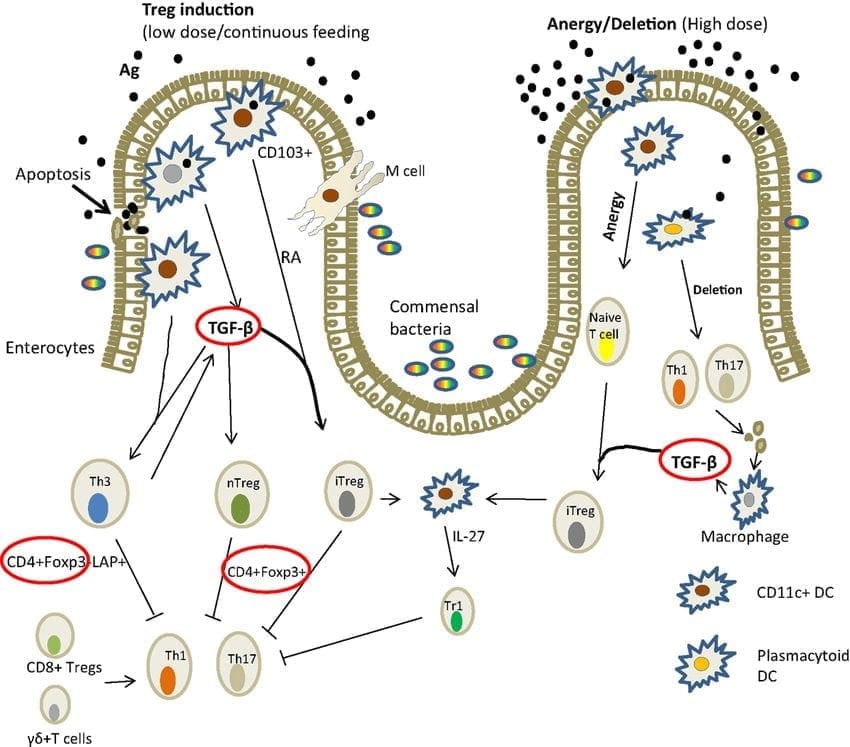
For the inflammatory responses to be eliminated, patients have to remove the offending food for about 3 to 4 weeks if IgA antibodies are present or 3 to 6 months if the IgG antibodies are present as well. This is the only way for the antibodies to disappear, and the intestinal permeability can heal. But the disappearance of antibodies does not guarantee that oral tolerance has been established. If you are retesting a patient and if the antibodies are gone, that indicates that the patient has done an excellent job in eliminating that food from their diet. However, the only way to know is to reintroduce the food and retest after a few months, just to make sure that no antibodies are being produced after the intestinal barrier has been fully healed.
Conclusion
All in all, that is what the intestinal permeability does when we have IgA and IgG antibodies and what do they do when there is food sensitivity in the body.� However, it is crucial that our patients understand that we here at Injury Medical Clinic, take the time to study what causes inflammation in our patients and using integrated functional medicine to make sure that their intestines are being healed naturally. In the next article, we will discuss the difference between peptides and proteins, and about the Lectin and Dairy Zoomer.
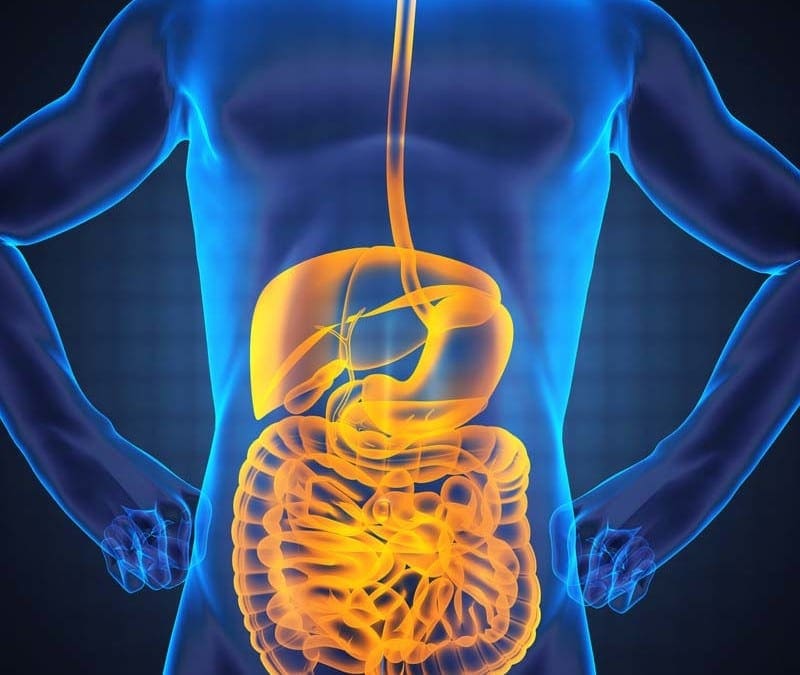
by Dr Alex Jimenez DC, APRN, FNP-BC, CFMP, IFMCP | Functional Medicine, Gut and Intestinal Health, Health, Wellness
In the last article, we talked about what the polyphenols do in the microbiome and in the previous section, we discussed about the microbiome functions in our bodies. However, today we will be concluding the three-part series of the microbiome functions in our bodies as well as presenting on the top 5 environmental toxins that can disrupt the gut microbiome, finding ways to de-stress ourselves, and learning about the different foods that can help detoxify our bodies so we can live a healthier life.
Top 5 Environmental Toxins Disrupting the Gut Microbiome
Triclosan
This is a synthetic antibacterial chemical found in personal care products such as soap, mouthwash, toothpaste, hand sanitizer, and deodorant. It is easily absorbed through the skin and gastrointestinal tract and rapidly alters the microbial composition of the digestive tract if it is ingested. However, this rapid restructuring of the gut microbiome impairs the immune system-regulating activities of gut microbes.
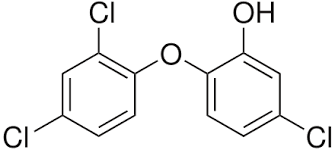
We use this chemical mostly in our daily skincare and hygiene routine so that way we won�t be sick. We tend to use this chemical compound to make us smell, look, and feel good frequently, especially in the cold and flu seasons where we use them the most so we won�t get sick. In fact, the frequent use of antibacterial products has been associated with an increased risk of food sensitivities, seasonal allergies, and asthma.
Pesticides

Surprisingly there are a staggering 1 billion pounds of pesticides used per year in the United States, and 5.6 billion pounds are used worldwide. Most farmers used it to spray down the insects so that way their crops won�t be destroyed. And we used pesticides on our lawns to get rid of weeds and keep the bugs off our gardens.
However, did you know that pesticides can kill beneficial bacteria in our gut? Studies, especially animal studies, indicate that pesticides can destroy the beneficial gut bacteria and can increase the risk of intestinal dysbiosis and cause immune system disorders, among with many other chronic health issues.
Plasticizers
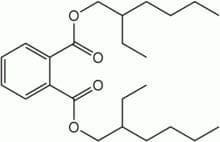
These are chemicals that provide flexibility or rigidity to plastic products. These chemicals are highly prevalent in our environment and have a significant impact on gut bacteria. �Surprisingly the most common plastics are mostly BPA (Bisphenol-A).

Bisphenol-A (BPA) can be found in plastic water bottles, receipts, and the lining of canned foods. They can alter the healthy gut flora and disrupts the body�s hormonal system by mimicking the hormone estrogen. We do use these to put our leftovers in after we consume food. But now and days when we meal prep our food, we do look for containers that are BPA- free. However, while often being marketed as �BPA-free,� the plastic alternatives may be equally, if not more, harmful to our gut microbes.
Bisphenol-S and bisphenol-F demonstrate endocrine-disrupting effects that are comparable to BPA. These adverse effects may extend to the gut microbiome, causing disruption. Phthalates are another class of endocrine-disrupting plasticizers that are used as solvents in personal care products and vinyl plastic, and they also reduce the levels of beneficial gut bacteria.
Heavy Metals
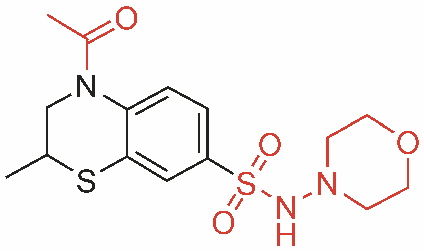
Heavy metals, such as cadmium, lead, and arsenic, can reduce the levels of beneficial bacteria in the gut that protect against intestinal inflammation and may promote inflammatory gastrointestinal disorders. All microbes are responsible for methylating or demethylating metals, and the exposure may exceed the capacity to perform this. Due to industrial pollution, heavy metals are the most common contaminants that are in the soil and drinking water when we grow food and drink from the tap.
Pharmaceutical Drugs
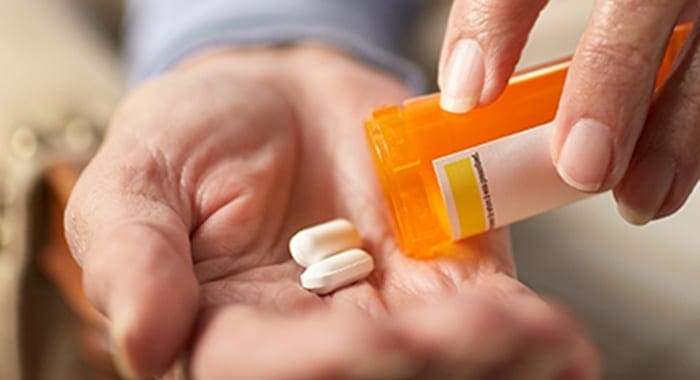
Surprisingly most pharmaceutical drugs can help our bodies fight off infections or alleviate some pains we may be inflicted. But those antibiotics can disrupt the gut microbiome and cause an imbalance to our gut bacteria. We here at Injury Medical clinic, actually recommend our patients to alternatives to these drugs if you don�t want to disrupt your gut microbiome.
Functional medicines like whole foods and supplements can actually alleviate the pains that may cause disruption in your body.
Protecting the Microbiome From Environmental Toxins
When you want to live a healthier life and want to protect your body�s microbiome try these alternatives to get rid of these environmental toxins.
- Instead of using conventional cleaning products, which often contain triclosan, try switching to a plant-based brand. Also, try making your own cleaning products at home with natural ingredients.
- Avoid commercial body care products, as these are a significant source of triclosan, phthalates, and parabens. If you have any absorption of these chemicals, try checking out the Environmental Working Group�s Skin Deep Cosmetics Database. This database can help you find natural, healthy body care products that don�t contain microbiome-disrupting chemicals.
- Eat organic produce. Conventionally-grown fruits and vegetables are a significant source of microbiome-disrupting pesticide exposure. Research indicates that consuming organic food can significantly lower your body burden of pesticides, thus protecting your gut microbes. But y9ou are going to eat organic produce, remember to wash it first to get rid of excess pesticides.
- Try reducing your plastic intakes and limit your consumption of canned foods to reduce your exposure to BPA and BPA alternatives. When you are meal prepping, try using glass or stainless-steel water bottles and storage dishes instead of plastic, and opt for fresh food instead of canned.
- Try filtering your drinking and bathing water. Unfortunately, tap water is rife with pesticide residues, heavy metals, plasticizers, and pharmaceutical drug residues and can come off as a milky white if it�s not treated. So try to consider investing in a high-quality water filter that can remove these substances from your drinking water.
- Support your gut microbiome by consuming prebiotics and probiotics. In a previous article, we talked about probiotics in our gut. Probiotics can add beneficial bacteria to your stomach and may even help in the metabolism of toxins that are in your body�s microbiome. Prebiotics, a form of indigestible dietary fiber, that feeds probiotics and helps to support their growth and proliferation in the gastrointestinal tract.
Other Forms of Whole Body Detoxification

There are many ways to try and detoxify our bodies, so here are some examples:
- Sauna therapy
- Yoga, trampoline
- Meditation
- Energy healing/shamanism
- Taking a much-needed vacation
- Learn communication methods to accommodate multiple needs and to deal with stressful situations
Rebuilding the Gut Microbiome
When local health coaches, practitioners, and chiropractors are helping patients, they can provide a comprehensive strategy to help them gain a healthier life. When you want to rebuild your gut microbiome, try to reconstruct the natural digestive function with food/herbals. This will help support the immune system and nutritional status by creating the good bacteria in your liver and flushing out the toxins out of your system. However, try to avoid any foods that can trigger inflammation and can cause leaky gut.
Rebuild Natural Digestive Function
When you are rebuilding your natural digestive function, try finding food and supplements that contain zinc, Vitamin C, and bitter greens that can aid in the production of hydrochloric acid (HCL). However, avoid excessive amounts of fat in your diet so you won�t cause a leaky gut Also take some enzymes if you need them until your digestive is balanced and fully restored.
Support the Immune System and Nutritional Status
When your immune system is being overworked, try using micronutrient testing to identify deficiencies. Most SIBO patients are typically low in B12/iron, zinc, magnesium, and vitamin D.� But all these vitamins and supplements can support the immune system. With SIBO patients, they try to work on cleaning out their liver since it�s one of the major organs that flushes out the toxins in our bodies. If you do have SIBO, try adding more fruits and plant foods that can help �clean out the liver.� Certain fruits can be tolerated and titrated up after treatment over time, but try to reduce meat/animal fats and fats in general; since they are harder to digest and can contribute to imbalanced bile acid secretion. Also, use liver support herbs and supplements such as glutathione and silymarin.
Avoid Foods that Can Provoke Inflammation

In a previous article, we talked about food sensitivity and what to do if you have it. Some testing can be helpful to determine if other foods may need to be eliminated. Here are the most common foods that provoke inflammation in dysbiosis are:
- Gluten
- Dairy
- Eggs
- Soy
- Corn
So if you have a food sensitivity, start by slowly build the natural SCFA�s with small amounts of natural resistant starch (e.g., cooked/cooled potatoes). However, if the patient is being treated with SIBO, introduce it after. Also considering adding other sources of food so it can help grow the good bacteria in your gut. But also keep HCL production active to clean out the stomach and upper part of the small intestine.
This will ensure that the good bacteria will grow over time with your diet and the help of probiotics and fermented food. But if a patient has SIBO take caution so the patient won�t disrupt the treatments they are in and are completed.
If you are taking care of a patient, carefully choose probiotic based on symptoms they have. Some will need a d-lactate free formula, and you can bring up the dosage over time until their treatment is complete. Some CFUs (colony forming units) will vary by product and viability through the GI tract (enteric-coated vs. not), and some probiotics may need to be used long term in some individuals.
Fermentation

Fermented foods are very beneficial to our gut flora as they actually help in the production of good bacteria in our intestinal barriers. Fermented foods and beverages are literally alive with strong pronounced flavor and nutrition. However, not all preserved foods are fermented with live cultures; some may be brined through the use of vinegar and/or salt, and do not impart probiotic benefit.
 �Fermentation is the transformation of food by various bacteria, fungi, and the enzymes they produce. It is important to recognize that fermentation is a natural phenomenon much broader than social, culinary practices; cells in our bodies are capable of fermentation. In other words, humans did not invent fermentation; it would be more accurate to state that fermentation created us.� � Dr. Alex Jimenez�D.C., C.C.S.T.
�Fermentation is the transformation of food by various bacteria, fungi, and the enzymes they produce. It is important to recognize that fermentation is a natural phenomenon much broader than social, culinary practices; cells in our bodies are capable of fermentation. In other words, humans did not invent fermentation; it would be more accurate to state that fermentation created us.� � Dr. Alex Jimenez�D.C., C.C.S.T.
Conclusion
So all in all, those are some of the many ways to actually help our bodies microbiome when we want to live a healthier life. Here at Injury Medical Clinic, local chiropractors and health coaches, actually use functional medicine to patients so that way, they can fix their ailments naturally, without the use of drugs and non-conventional methods. If we can change a person�s lifestyle with functional medicine, we can repair the microbes in our bodies, one at a time naturally, of course.

by Dr Alex Jimenez DC, APRN, FNP-BC, CFMP, IFMCP | Functional Medicine, Gut and Intestinal Health, Health, Wellness
In the last article, we talked about how the microbiomes in our body worked and functioned. As well as learning what each microbe does in our bodies but mostly in our gut. When we are learning more and more about the microbiome, we discover many exciting things that our bodies are capable of as well as being the workers in our intricate immune system. In today�s article, we will be taking a look at what polyphenols does to our microbiomes as well as specific vitamins that are very helpful to our gut and going in-depth more with SCFAs (Short Chain Fatty Acids) and the Tight Junction.
The Role of Polyphenols in Microbiome Balance
Polyphenols, or phenolic compounds, are considered a type of micronutrients, and they are plentiful in plants. They have been well-studied for their role in the prevention of chronic diseases such as CVD, cancer, and neurodegenerative diseases. They also have antioxidant properties, and there are several hundreds of polyphenols that are found in edible plants that serve a giant purpose of defending our bodies against ultraviolet radiation or aggression by pathogens.
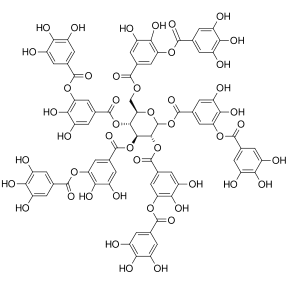
To figure this out, think of it like this: The bacteria in our large intestine releases polyphenols from the plants we eat in our diets. It is then transformed into a diet composition that alters the bacterial ecosystem (through the prebiotic effects and antimicrobial properties) to make our gut happy.
Here are some of the microbes that are in polyphenols:
- Phenolic acids: These are derivatives of benzoic acid and derivatives of cinnamic acid.
- Flavonoids: These microbes contain flavonols (e.g., quercetin), flavones, isoflavones (e.g., phytoestrogens), flavanones, anthocyanidins, and flavanols (e.g., catechins and proanthocyanidins)
- Stilbenes: These microbes are resveratrol
- Lignans: these are minor in the human diet and are linseed oil
Surprisingly some factors affect the polyphenol content of plants, and these include:
- The ripeness at the time of harvest
- The environmental factors (exposure to light, soil nutrients, pesticides)
- processing and storage
When we eat organic fruits and vegetables, they have more polyphenol content that is usually, due to growing under slightly more stressed conditions. Which requires the plant to generate a stronger �defense and healing� response to the environment, and only 5�10% of the total polyphenol intake is absorbed in the small intestine. And 90-95% polyphenols that are linked to fibrous components must be liberated through hydrolysis by bacteria in the large intestine.
Surprisingly some polyphenols do not show up in plasma in humans after ingestion, and a large quantity is metabolized by intestinal bacteria or used to neutralize various pro-oxidizing agents in the intestinal lumen.
Clostridium and Eubacterium (which are both Firmicutes), are the primary metabolizers of polyphenols. Studies theorized that higher polyphenol intake may play a role in shaping the Bacteroidetes to Firmicutes ratio (e.g., inflammatory response potential, obesity, etc.) and can be harmful to our bodies.
However, more recent studies have shown effects of inhibition on Clostridium and Staphylococcus of polyphenols such as grape seed extract, in favor of Lactobacillus and other studies have demonstrated potent inhibition of phenolic compounds thymol (thyme) and carvacrol (oregano) on Escherichia, Clostridia and other pathogens, while simultaneously leaving Lactobacilli and Bifidobacteria have been unaffected.
Here are some other examples of some polyphenols:
- Resveratrol increases Clostridia, Lactobacillus, and Bifidobacteria
- Blueberry phenolics increase Bifidobacteria
- Phenolic compounds in tea suppress C difficile and C perfringens
- Catechins (found in high doses in teas and chocolate) act on different bacterial species (E. coli, Bordetella bronchiseptica, Serratia marcescens, Klebsiella pneumonia, Salmonella cholestasis, Pseudomonas aeruginosa, Staphylococcus aureus, and Bacillus subtilis) by generating hydrogen peroxide and by altering the permeability of the microbial membrane
- Some studies have shown that polyphenols can interfere with bacterial cell signaling and quorum sensing (environmental sampling)
- Polyphenols can also cause bacterial populations to stop expansion through signaling interference
- Some research indicates certain polyphenols may be able to block the production of bacterial toxins (H. pylori and tea/wine polyphenols)
The Applications for A Diet

When it comes to eating a healthy diet, variety does matter. The colors, the types of fibers each organic food has, and whether you are going to do it daily or weekly. When you are trying to be in a healthy lifestyle, it always starts with the food. When you are looking for fresh produce, try to emphasize fresh, organic, and minimally processed versions of polyphenol-rich foods. However, don�t boil produce. Instead, try steaming then, and it is the best, but roasting or light frying is not only better, but it tastes so good.
Vitamins that help our Microbiome
When we are older, we tend to lose specific vitamins that actually helps us and our bodies to be healthier. Here are some of the vitamins that are really good for our gut and can help us prevent leaky gut.
Vitamin D
Vitamin D controls the development of gut-associated lymphoid tissue in our bodies. It is trafficking between gut dendritic cells, and they can differentiation of T-regs and T-reg function in our gut. But the expression of VDR, which influences IL (interleukin) production and tight junction integrity to help our gut.
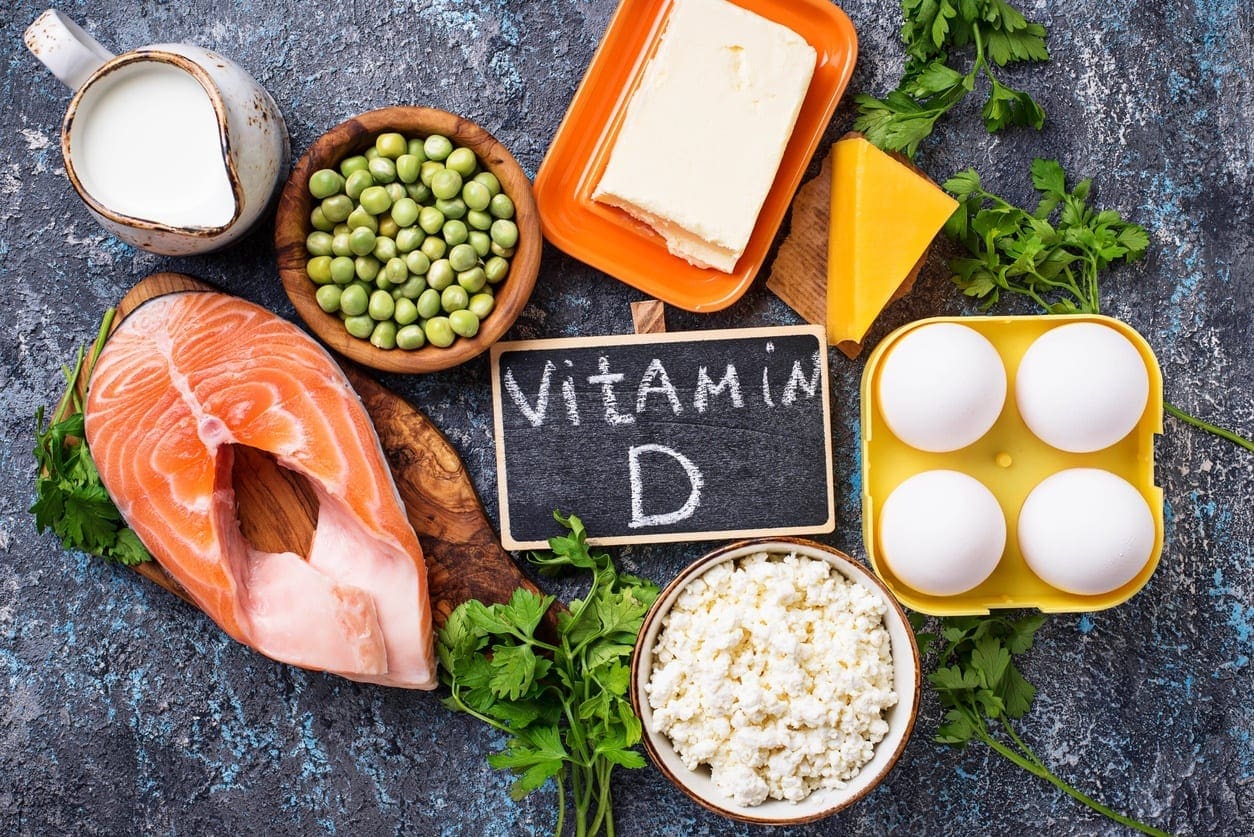
When it comes to our gut, here are some of the effects of Vitamin D on the gut microbiome. The higher the Vitamin D levels are, they will allow commensal bacteria to secrete more AMPs (antimicrobial peptides). When patients take a high dose of Vitamin D, over 5 weeks can lead to a significant reduction in Pseudomonas spp and Shigella/Escherichia spp in upper gut intestines.
Another thing that Vitamin D does is that it can increase T cell differentiation in the colon. A lack of T-regs increased the incidence of asthma, allergies, autoimmune, and autism. But T-regs can prevent the development of aberrant immune responses such as autoimmune and food sensitivities. We here at Injury Medical Clinic, talk about functional medicine to our patients and try to help them recover from their ailments.
Because Vitamin D exposure fluctuates seasonally for many individuals, it has been observed that lower Vitamin D levels in the winter tend to lead to changes in the intestinal microbial balance. This will make our bodies have a decreased level of Bacteroidetes and an increased level of Firmicutes. This is the reason for �winter weight gain� in many individuals as F: B ratio changes.
Vitamin A
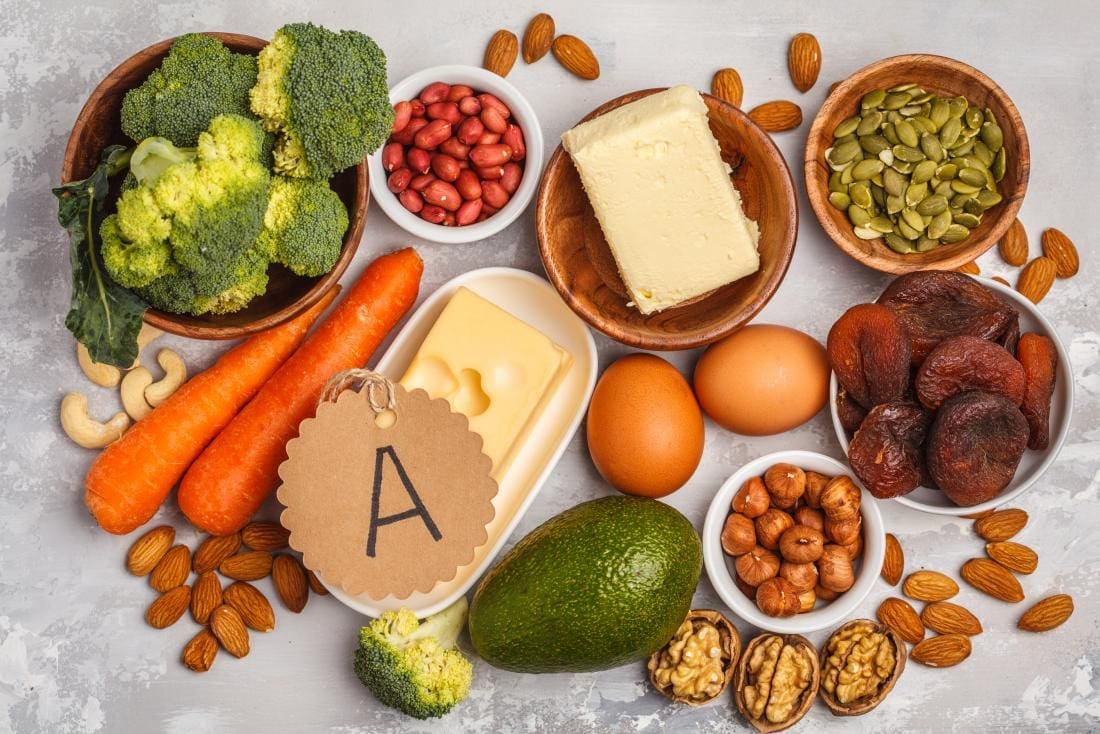
This is a retinoic acid that is required by dendritic cells (DCs) to induce T-cells (and B cells) which are the �tracking and regulation system� of the mucosal immune response. Because of this, T-cells must differentiate into T-regs to maintain a �calm and cool� system or immune tolerance to both our environment, symbiotic organisms, and food.
Omega-3 Fatty Acids
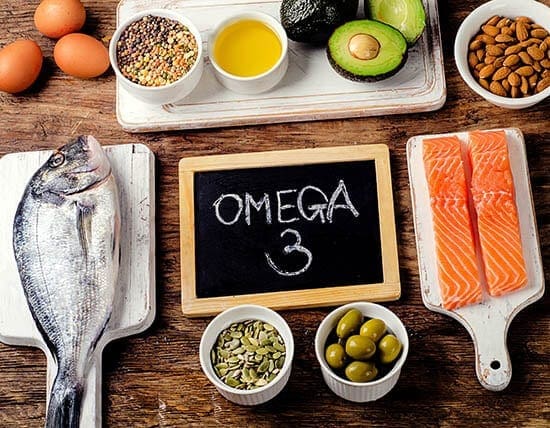
We talked about Omega-3s in a previous article as they are one of the many supplements that we can�t produce in our bodies. It can be mostly found in fish, and some plants can contain omega-3s. But it is a vital team player when we are trying to be healthy and can prevent a leaky gut. Not only that but omega-3s are crucial importance to more youthful skin.
SCFAs (Short Chained Fatty Acids)
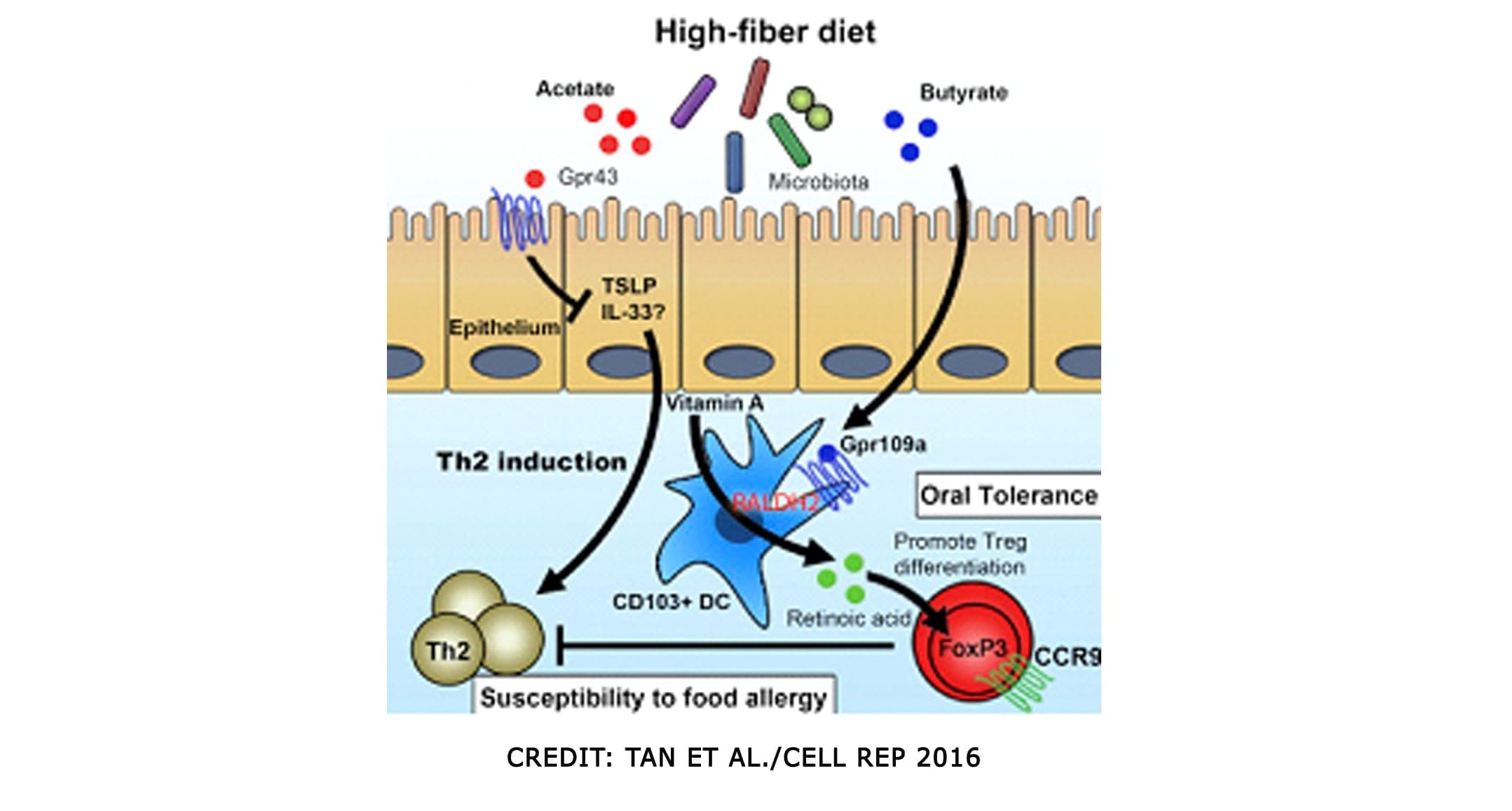
SCFAs (Short Chained Fatty Acids)�are well-studied to demonstrate anti-inflammatory properties in the large intestine. They are the primary source of fuel for cells lining the intestinal epithelium of the large intestine. They contained: �Butyrate, Proprionate, Acetate. In a previous article, we discussed what SCFAs do when we eat fatty food. It can be both good or bad, depending on what kinds of food you consume. SCFAs act on G-protein coupled receptors to induce differentiation of T-cells, but also on those GPRs in DCs. They can both be direct and indirect influences on our gut.
SCFAs can produce bacteria and can directly impact T-reg production. And that SCFAs inhibit the mucosa and competitively inhibit opportunists. Some foods that provide higher resistant starch will typically yield the most short-chain fatty acids upon microbial fermentation
Tight Junction Modulations
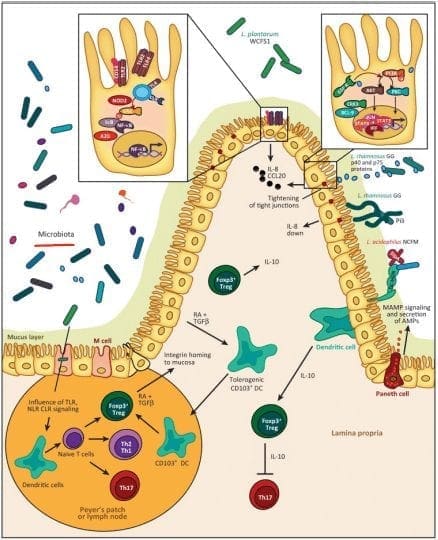
The tight junctions are the gateways between the epithelial cells. In a previous article, we took a look at what the tight junction is. They control the flow of nutrients, macromolecules, and other substances that are usually allowed to pass through without cellular diffusion or absorption.
Conclusion
All in all, we covered a lot of information about what polyphenols does as well as specific vitamins and supplements that can help our bodies prevent a leaky gut. The microbiomes in our collection and the use of functional medicine can be beneficial in helping us not only to a better, healthier life but, a working, functional body for us when we are older. Tomorrow we will end this three-part series with foods and tips to have a healthy microbiome in our gut and our bodies.
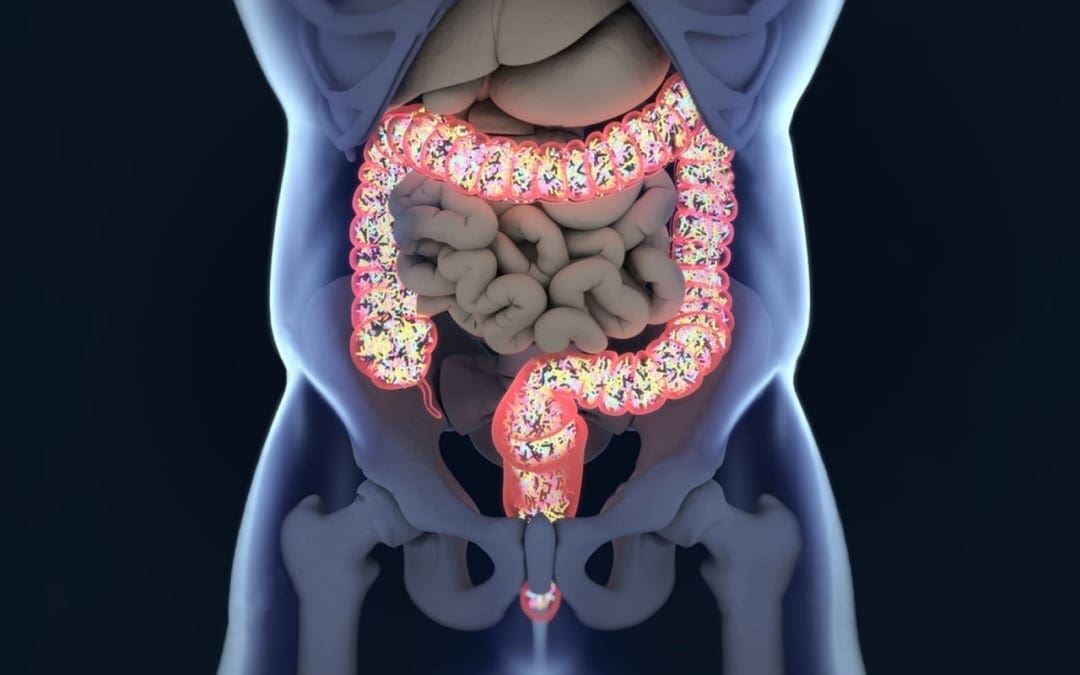
by Dr Alex Jimenez DC, APRN, FNP-BC, CFMP, IFMCP | Functional Medicine, Gut and Intestinal Health, Wellness
To understand exactly how lipopolysaccharides and gram-negative bugs affect the immune system we must first investigate what lipopolysaccharides are and their role in gram-negative bacteria and the human body as a whole.
LPS (Lipopolysaccharides)
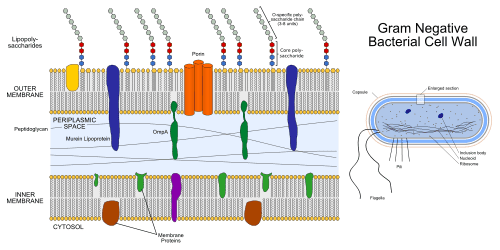
Lipopolysaccharides (LPS) are large molecules consisting of a lipid (fatty acid) and a polysaccharide composed of the O-antigen, outer core, and the inner core all joined by covalent bonds. �Lipid A in LPS is the hydrophobic component responsible for the major bioactivity of LPS. Hydrophilic polysaccharides consist of long chains of monosaccharides (simple sugars) linked together by glycosidic linkages. LPS play their role in the outer membrane of gram-negative bacteria by supporting the structure of the bacteria and shielding the membrane from chemical attack. Gram-negative bacteria are related to foodborne diseases, respiratory infections, plagues, and some sexually transmitted diseases. Some gram-negative bacteria have become so resistant to antibiotic drugs that they are often very difficult to treat and unfortunately vaccines are not available for these types of bacterial infections. Additional enzymes can sometimes alter the structure of the LPS, and though the structure is not required for the bacteria�s survival it is closely related to the virulence of bacteria. For example, the lipid A component of LPS can cause toxic reactions when lysed by immune cells. LPS in humans trigger the immune system to produce cytokines (hormone regulators). Production of cytokines is a common cause of inflammation.
Now that we are able to recognize the relationship between LPS, gram-negative bacteria, and inflammation/infections in the human body, we must understand how to prevent and treat infections related to gram-negative bacteria. Gram-negative bacterial infections are caused by contact between infected and non-infected peoples. They are very common in healthcare settings, but by taking simple measures such as hand washing and keeping a strong immune system will help prevent them. How do we keep a strong immune system? Choosing a healthy lifestyle is the first most basic step in this process. Because the immune system is a system, we must understand that there is no direct way to improve its strength. It is strengthened through what we put into our body and how we treat our body. However, it is important to distinguish between building a strong immune system and boosting the number of immune cells in our body. It is potentially harmful to boost the number of immune cells because there are so many different kinds of cells in the immune system that respond to so many different microbes in so many ways. Diet, exercise, reducing stress levels, and some herbs and supplements all contribute to building and supporting a strong immune system.
Conclusion
Throughout this article, we have learned about lipopolysaccharides and the role they play in gram-negative bacteria. Gram-negative bacteria are known to be harmful to the human body so we have found ways to prevent the harmful infections it causes. The immune system plays an obviously important role in fighting infections, but it needs to be strong to support our body and fight infections efficiently. This basic knowledge is provided to set the basis for further research on how to support the immune system.
Resources:
https://www.niaid.nih.gov/research/gram-negative-bacteria
https://www.scbi.nih.gov/pubmed/20593260
https://en.wikipedia.org/wiki/gram-negative_bacteria
https://www.health.harvard.edu/staying-healthy/how-to-boost-your-immune-system

by Dr Alex Jimenez DC, APRN, FNP-BC, CFMP, IFMCP | Functional Medicine, Gut and Intestinal Health, Wellness
The microbiomes in our bodies are fascinating. They help our various organs function correctly, helping out our immune systems battle terrible stuff. They can tell us what we are doing to our bodies when we consume food. However, the microbiomes in our gut tell us a different story as we are going to discuss what does microbiomes do as it functions in our body as well as our gut.
The relationship between the gut microbiota and its host plays a crucial role in:
- immune system maturation
- food digestion
- drug metabolism
- detoxification
- vitamin production
- prevention of pathogenic bacterial adhesion
Also, the composition of the microbiota is influenced by environmental factors such as diet, antibiotic therapy, and environmental exposure to microorganisms.
Why Don�t We All Have the Same Microbiome?

Whenever we are trying to live a healthy lifestyle, our bodies will go through so many changes. When we get rid of the bad stuff that is causing us problems and the beautiful thing start taking effect in what we put in our bodies. We, as humans, have different body structures and body types that are way different. Some people lose or gain weight differently. When other people exercises, they go at their own pace, and several factors influence the bacterial composition in taxa type and abundance. These factors include:
- host phenotype, such as age, gender, body mass index (BMI)
- lifestyle
- immune function
- geographical belonging and environmental factors
- use of antibiotics, drugs, and probiotics
- DIET
Moreover, long-term dietary habits have been shown to play a crucial role in creating an inter-individual variation in microbiota composition.
Manipulating the Microbiome: Key Terms
Here are some key terms to remember when we are talking about the microbiome.
- Stability: resistance to change and the ability to maintain homeostasis.
- Resilience: capacity to return to homeostasis after disturbance.
- Diversity: DIVERSE microbiomes are more stable and more resilient (to antibiotics); more resistant to foreign invasion (pathogens).
- Relative Abundance: Even �good� bacteria can be too abundant without balance from symbiotic species; the presence of �bad� bacteria is not necessarily always harmful if enough �good� are there to balance.
- Colonization Resistance: The capacity of the microbiome communities to resist new colonization by pathogens and other transients.
- This is a KEY factor for preventing GI infections; but also explains why probiotics are not always practical.
- Our COMMENSAL microbiome is our first line and of defense
- Microbial depletion: Infection; Antibiotics; Toxins/Chemicals; Stress
- Restore balance/� reseeding�: (the term �reinoculate� is not really correct) Probiotics; Fermented foods; Prebiotics/Polyphenols.
Advantages to DNA Testing

For many practitioners, measuring microorganism DNA allows for:
- Detection of a more diverse collection of microorganisms, (more genus and species, particularly anaerobic species)
- They can measure at the species and subspecies level
- They have a much better snapshot of dysbiosis and diversity
- Have better accuracy of results
- Much faster turnaround time and much less expensive
- Concept of �epigenetics.�
However, DNA is DNA-dead or alive whenever practitioners are looking at a patient�s DNA structure. Culture Technology is still considered �gold standard� but has several limitations. They are trying to culture anaerobic bacteria, but some of the most important bacteria are anaerobic commensals. There is a limited detection of several microorganisms, but it�s usually genus level only. Microorganisms can grow and/or die in transit and what�s measured in the culture dish is not always 100% indicative of the sample at the time of collection; the environment can morph while in transit to the lab and changes in pH etc.
Important Groups
These are some of the microbiomes that are very functional to our bodies and what parts do they play.
Commensals

This microbiome provides the host with essential nutrients and contains Aerobic and Anaerobic microbiomes.
- Aerobic (survives better in oxygenated environments; less prevalent in the colon, however, some are considered �obligate anaerobes�). They are:
- Lactobacillus
- Bifidobacterium
- Bacillus
- Anaerobic (more likely to be found colonizing the distal colon due to limited oxygen). They are:
Lactobacillus and Bifidobacteria
These two are the most well-researched genus of bacteria. They are widely available in commercially available probiotic products.

- Lactobacillus are:
- lactic-acid forming bacteria
- Form biofilms which allow surviving harsh/low pH conditions (stomach acid)
- Helps maintain the integrity of the intestinal barrier
- Abundant in probiotics/fermented foods

- Bifidobacteria are:
- One of the first bacteria to colonize the gut after birth
- Aids in digestion, reducing inflammation, and stimulation of immune cells
Bacillus

These are spore-forming bacteria. They form spores in harsh environments which makes them more resilient, heat-stable, and have better viability in the gastric environment. But they may have better efficacy as probiotic therapy in SIBO population. These are in another category of commercially-produced probiotics beyond the standard Lactobacillus and Bifidobacterium.
In the health world, known as �Soil Based Probiotics.� They are very prominent in the environment and their primary role in immunomodulation; stimulation of the immune system. They are a production of GALT-Gut Associated Lymphoid Tissue and are known to be significant players in the production of B Vitamins and Vitamin K2 in the gut known as Bacillus subtilis
Clostridia
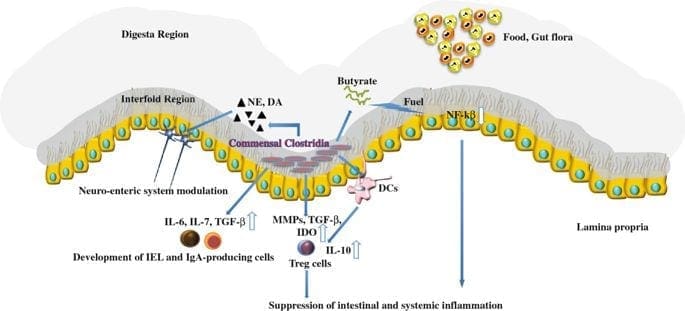
These are a major anaerobic group of commensals. They comprise 10% to >50% of the microbiome and are critical for the health of the gut barrier and intestinal lining, and barrier integrity. These are essential producers of butyrate (SCFA) and secondary bile acids. They also thrive on a high and diverse fiber diet, grape, and red wine polyphenols such as Blautia, Butyrivibrio, Eubacterium, Faecalibacterium prausnitizi, Roseburia, Ruminococcus, etc. However, there are usually no probiotic supplements to directly increase the abundance of clostridia.
Akkermansia

These microbiomes make up 1-3% of a healthy microbiome, and they help maintain the health and integrity of the mucosal barrier.
- Akkermansia muciniphila = mucin lover
They also help with reducing inflammation and may impart protection of inflammatory bowel diseases. These microbiomes are keystone species that are highly correlated with higher microbiome diversity.
Proteobacteria

This is a PHYLUM category of bacteria. This microbiome contains gram-negative and all bacteria that carries an LPS. This group includes plenty of beneficial bacteria but also contains several pathogens that tend to thrive in pro-inflammatory condition.
Gram (+) vs Gram (-) Bacteria
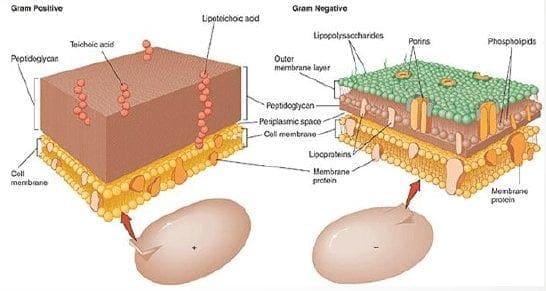
These two types of bacteria are in our bodies as they have very different functions that can either protect or disrupt our gut.
- Gram-Positive (+) contains:
- Peptidoglycan
- Lipoteichoic acid
- Gram-Negative (-) contains:
- LPS as a component of their cell wall
- LPS is a very powerful ENDOTOXIN- a known contributor to induce significant inflammation and potent immune response
- LPS antibodies are measured on Vibrant Wellness Wheat Zoomer/Intestinal Permeability Panel
However we can�t generalize Gram (-) as �bad� or Gram (+) as �good� or vice-versa, but we can control it with the Zoomers test.
LPS(Lipopolysaccharide)

In the last article, we mentioned them briefly, but here is a refresher on what theses microbes do. They are a fat/sugar molecule that lines the gram-negative bacteria inside the gut, and they protect those bacteria from bile salts. They are present inside the gut lumen under normal physiological conditions, and they usually should not enter the bloodstream. But if it does open in the blood then�
- 1) LPS antibodies are created-tagged as �non-self.�
- 2) Indication of intestinal permeability.
- 3) triggers multiple inflammatory cascades = ENDOTOXEMIA
- 4) Can help differentiate if leaky gut is happening between cells or through cells (or both), which are Transcellular vs. Paracellular pathways
Conclusion
These are the microbiomes that are in our body and how each of them plays a role to make our bodies healthy. We here at Injury Medical Clinic, do talk with our patients about what goes on in their bodies. We inform them on how to take care of themselves through the means of functional medicine. This is part one of a three-part series since tomorrow we will be discussing the roles of polyphenols in the Microbiome balance.

by Dr Alex Jimenez DC, APRN, FNP-BC, CFMP, IFMCP | Functional Medicine, Gut and Intestinal Health, Health, Wellness
In the last three articles, we introduced the wheat zoomer, went in-depth about the intestinal permeability, and the microbes in our gut. We also talked about the hidden problem with gluten as well. Today we will be discussing what to do after your patient comes in for a check-up after completing their gut healing process. For this to work, patients have to be gluten-free for the results to work. After the healing phase, local chiropractors, health coaches, and physicians can introduce gluten back slowly into the patient’s diet.
Checkups
When the patient comes in for a check-up, here are some of the things doctors look for:
- If everything is green, re-introducing gluten may be possible for patients.
- If anything is still yellow or red, patients must continue to avoid gluten and keep the gut healing process until the test results are all green.
After the appointment, patients can retest the wheat zoomer in about 3-9 months. However, there are about 50% of individuals with celiac disease that may also have antibodies to casein and may have to go dairy-free to heal their gut. Although some individuals are gluten sensitive may not be lactose intolerant but can go dairy free if they want to.
Lectins
Surprisingly all plants have lectin, but some of them are not problematic to humans thankfully. Legumes and grains play a role in increasing the diversity of microbes that may be beneficial or harmful to our bodies. Wheat Germ Agglutinin is the only specific lectin to the Wheat Zoomer, but it doesn�t reflect the overall lectin sensitivity but, consider the lectin zoomer to determine any particular lectins that your patient is sensitive to without eliminating unnecessary foods that are beneficial to the gut healing process.
Soy
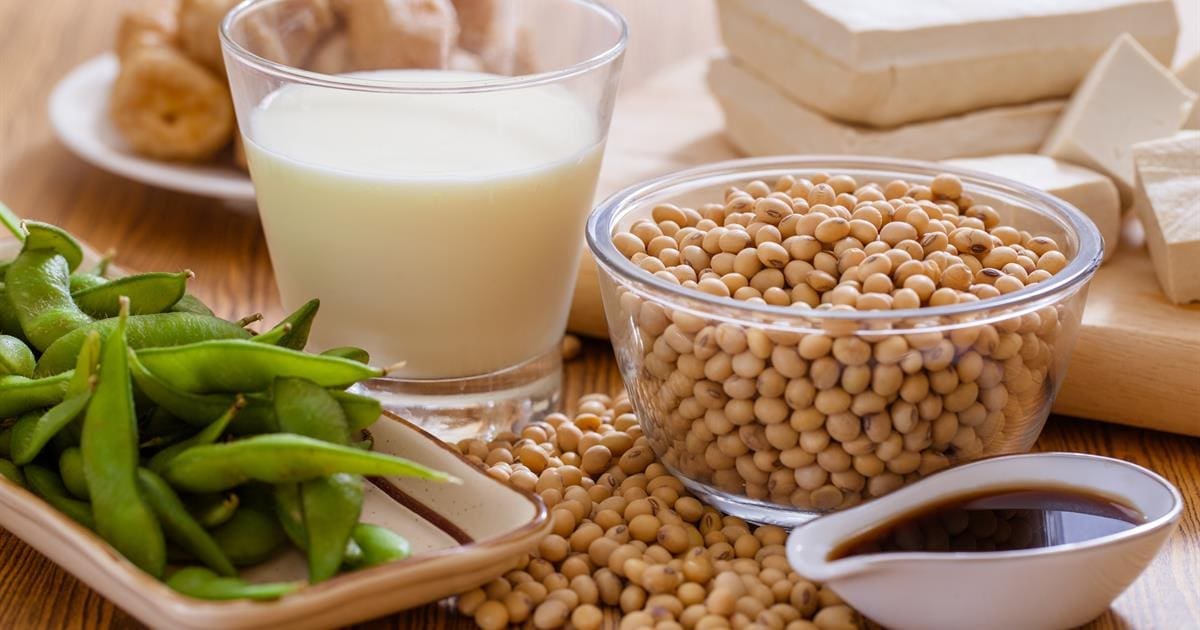
Many studies show that soy may be a problem due to the saponin since it does have higher lectin count. Here at Injury Medical clinic, we suggest that running the Lectin Zoomer on our patients with intestinal permeability makes sense for them to heal correctly. But animal studies stated that soybean agglutinin has the effect of the increasing release of zonulin away from the TJ (tight junction). And a human study reported that if the soy saponin is poorly absorbed or utilized by the human intestinal epithelial cell will end up metabolizing the intestinal bacteria and cause more harm to human.
Surfactants

Known as sucrose monoester fatty acids is mostly used in cosmetics, food preservatives, food additives. Sucrose esters are used as a surface treatment on some fruits like peaches, pears, cherries, apples, and bananas. It keeps the moisture on the peel or rind controlled. Sucrose mono ester used in cosmetics as an emulsifier.
Bone broth/Collagen

Up to this date, there are minimal studies that have examined the role of bone broth or collagen that it repairs the intestinal barrier. It all depends on the animal and the bone it comes from and the contents that people have put in a bone broth soup.
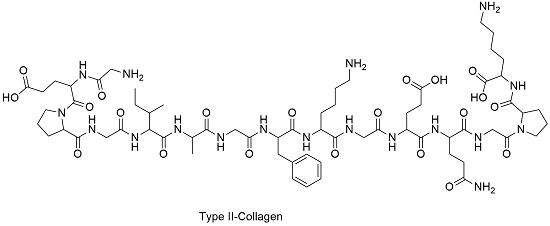
However, there is a small body of evidence for the use of collagen peptides seem to support the usage in their autoimmune disease treatment protocol. But the results cant be extrapolated whether bone broth would have similar effects. So more studying about bone broth is needed.
Organic Produce

When people say that they are going organic, it is beneficial for people that are willing to change to a healthy lifestyle. Granted that organically produces are locally grown, but still, organic produce or non-organic produce will not have less or safer pesticides. They are different, but all of the crops like fruits and vegetables are grown with pesticides.
Just like all fruits and vegetables, still, wash them thoroughly to reduce the number of pesticides and surfactants exposure and enjoy them to your heart’s content.
Resistant Starches
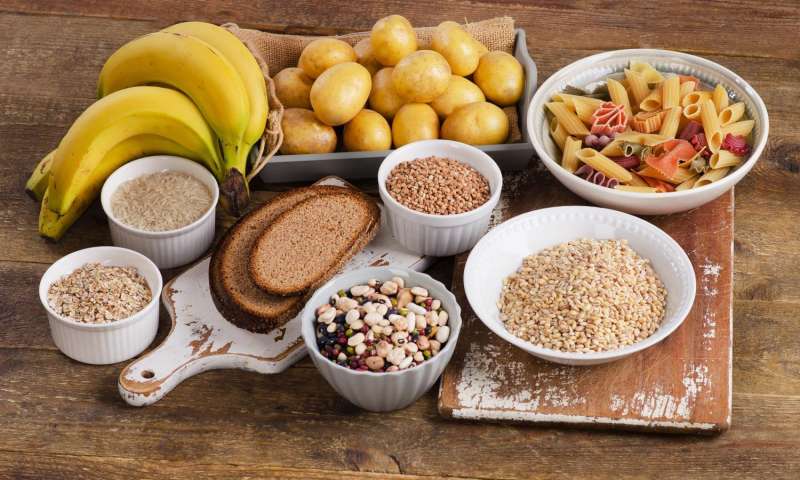
Resistant starch foods are a form of carbohydrates that can be converted to short fatty acids by SCFA-producing bacteria. With higher SCFA levels, these starches aid immune tolerance, T-cell differentiation, and intestinal barrier homeostasis. Other types of fibers are high value, and variety is essential. Like for example, cooked/cooled rice and potatoes are excellent resistance starch foods.

“Eat like a vegetarian who eats meat.”- Dr. Alex Jimenez�D.C., C.C.S.T.
Polyphenol Foods
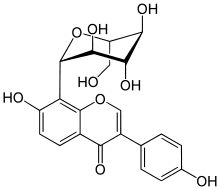
Polyphenols, flavonoids and other phenolic compounds will aid to maintained TJ stability through inhibiting phosphorylation of TJ complexes.
Fermented Foods

Fermented food or drinks that contain live probiotic cultures are excellent in promoting a healthy gut. However, it is challenging to study fermented food and beverages due to highly variable stains, composition, nutrient content. But studies found that participants who drink a fermented plant extract drink saw improvements in their body and increased total antioxidants and total phenolic in plasma as well as with reducing total C and LDL-C.
Beneficial bacteria like Bifido and Lactobacillus were increased while E Coli and C perfringens were decreased in the gut. So drinking or eating fermented food can help our gut and help our bile growth to be flushed out.
Granted, we all know that trying to be healthy is very hard. It is true that even though exercising is easy because we can do it over and over again until we are masters at it but, when we overdo the exercises it will cause harm to our bodies and hurting it in the process. �Eating healthy is hard as well because our bodies may have a food allergen or a food sensitivity that will make us disappointed that we can�t enjoy the foods we want to eat. Yes, eliminating diets are very hard and challenging to follow in the long term and have poor compliances when we don�t put in the work. So start by exploring other tests to tailor patients diets to meet their health needs and prolong their recovery period.
Supplements
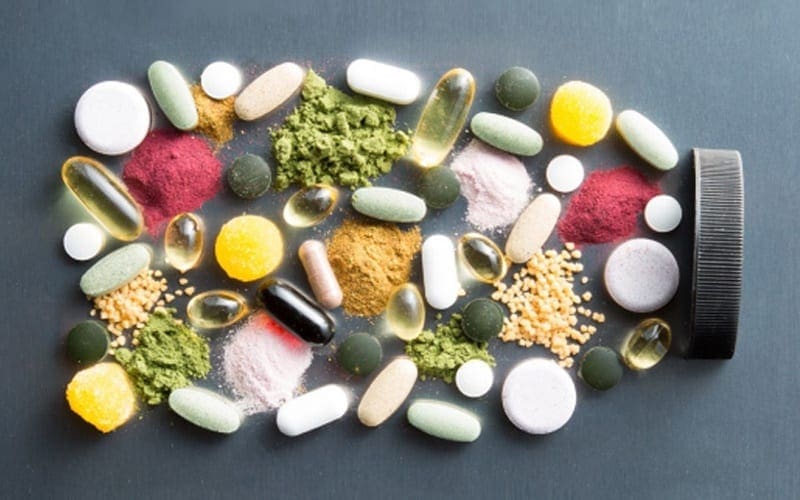
Supplements are fantastic to aid the valuable nutrients and minerals our bodies can�t produce. Common supplements prescribed include:
- L-glutamine
- Vitamin D3
- Collagen
- Colostrum
- Zinc carnosine
- Ox bile
- Omega-3s
- Turmeric/Quercetin
- Magnesium
Stress Management

Granted that stress is part of our lives and we can manage small amounts of it, and it is beneficial to us, but some people have chronic stress and have to go to a doctor to get it treated. But there is hope as there are ways to manage stress and doing it functionally and naturally.
Conclusion
So all in all, just to recap, if your patient is good to go and their test results are all green, you can introduce gluten back to their diets again in small increments and can be rested in about 3 to 9 months. But if your patient does have a gluten allergen then just let them know that they must continue to be gluten-free. We here at Injury Medical Clinic, always put our patient�s needs first for them to live their best lives with functional natural medicine.























 �Fermentation is the transformation of food by various bacteria, fungi, and the enzymes they produce. It is important to recognize that fermentation is a natural phenomenon much broader than social, culinary practices; cells in our bodies are capable of fermentation. In other words, humans did not invent fermentation; it would be more accurate to state that fermentation created us.� � Dr. Alex Jimenez�D.C., C.C.S.T.
�Fermentation is the transformation of food by various bacteria, fungi, and the enzymes they produce. It is important to recognize that fermentation is a natural phenomenon much broader than social, culinary practices; cells in our bodies are capable of fermentation. In other words, humans did not invent fermentation; it would be more accurate to state that fermentation created us.� � Dr. Alex Jimenez�D.C., C.C.S.T.



































